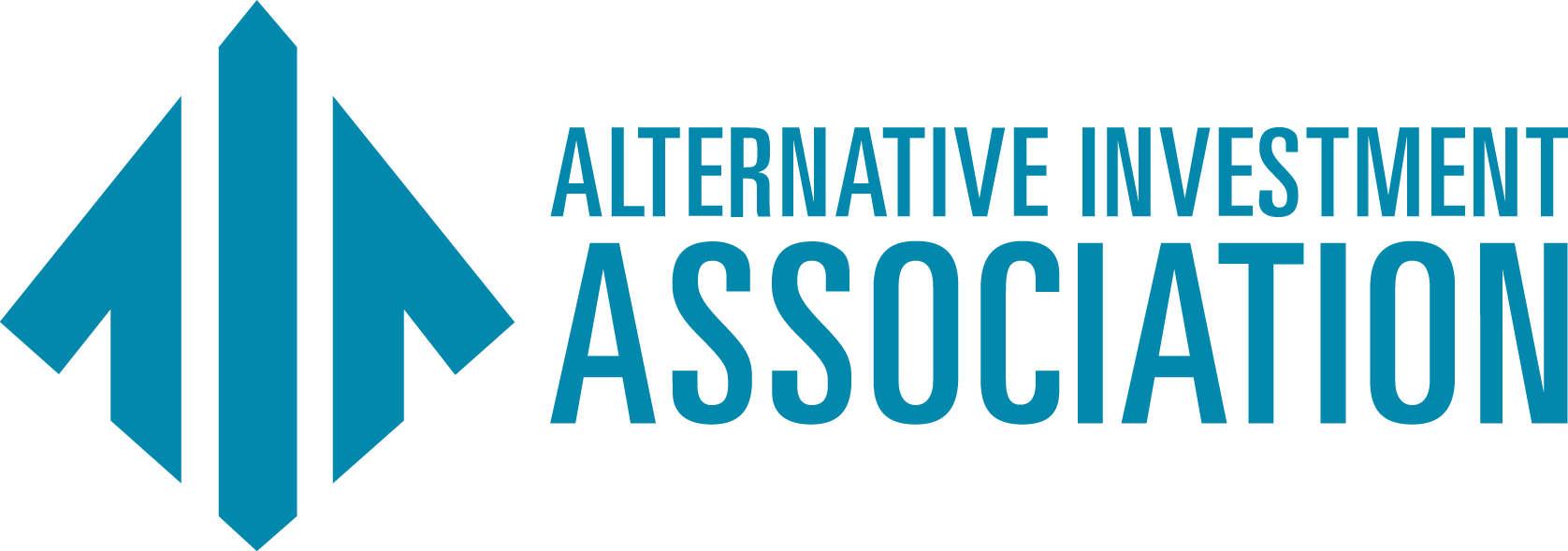The Winds of Change in Investment Management Traditional hedge funds dominated the investment world...

How Artificial Intelligence is Reshaping Hedge Fund Strategies
Introduction to the AI Revolution in Hedge Funds
Artificial intelligence (AI) is not just a buzzword in the technology industry anymore; it's a force that's disrupting various sectors, including finance. Hedge funds, traditionally reliant on quantitative models and human expertise, are increasingly incorporating AI into their investment strategies. While the fundamental ethos of hedge funds—to generate alpha and manage risk—hasn't changed, the ways to achieve those objectives are becoming more sophisticated, thanks to AI. Advanced machine learning models can analyze massive data sets faster and more accurately than humans, offering previously unimaginable insights.
AI technologies such as natural language processing, neural networks, and reinforcement learning are used to predict asset prices, understand market sentiment, and optimize trading strategies. Some hedge funds are even using AI to automate the entire trading process, eliminating the need for human intervention except for oversight and strategy adjustments. The shift towards AI-based hedge funds is motivated by the quest for higher returns and the need to remain competitive in an evolving landscape. As traditional methods become less effective due to market saturation and diminishing returns, hedge funds are betting big on AI to stay ahead of the curve.
The Quantitative Edge: Data Analysis at Scale
One of the most transformative applications of AI in hedge funds is in the realm of data analysis. Traditional quantitative methods, although powerful, are limited by the extent of data they can process and the speed at which they can do it. AI, particularly machine learning algorithms, can process vast amounts of data in real time, enabling more comprehensive and timely insights. This data includes financial indicators, market trends, and alternative data like social media sentiment, weather patterns, and geopolitical events, which are increasingly relevant in predicting market movements.
Machine learning models can identify complex, non-linear relationships within the data that are difficult for traditional quantitative models to capture. These algorithms improve with more data, adapting to market changes and enhancing predictive accuracy. Hedge funds that employ machine learning models have the flexibility to adjust to new information continually, thus providing them with a distinct advantage over those using static models. These capabilities allow AI-based hedge funds to execute high-frequency trading strategies with greater precision and lesser risk, ultimately aiming for better risk-adjusted returns.
Decoding Market Sentiment: Natural Language Processing
While quantitative analysis is vital, understanding market sentiment is equally crucial for successful trading. Sentiment often drives short-term market behavior, and hedge funds have turned to Natural Language Processing (NLP) to decode this enigmatic variable. NLP algorithms sift through news articles, social media posts, and financial reports to gauge public sentiment toward specific assets or the market as a whole. By rapidly analyzing text data, these algorithms provide hedge funds with a nuanced understanding of market sentiment, allowing them to make more informed investment decisions.
Before the advent of NLP, sentiment analysis was largely a manual task, relying on human intuition and experience. Yet, with NLP, hedge funds can systematically analyze sentiment across a vast array of sources, ensuring that their trading strategies account for the broader mood of the market. This application of AI is particularly useful in event-driven strategies, where sudden news events can significantly impact asset prices. By swiftly evaluating the sentiment surrounding an event, hedge funds can position themselves more advantageously, capitalizing on market inefficiencies.
Risk Management Through Reinforcement Learning
Risk management is an integral aspect of hedge fund operations, and AI is revolutionizing this domain through techniques like reinforcement learning. In a financial context, reinforcement learning algorithms learn to make investment decisions by navigating market data, receiving feedback through rewards (profits) or punishments (losses), and adjusting their strategies accordingly. Over time, these algorithms develop trading strategies that maximize returns while accounting for various risk parameters, such as volatility and drawdown.
Traditional risk management methods often rely on static risk models that may need to adapt more quickly to market changes. With reinforcement learning, hedge funds can employ dynamic risk models that adapt and learn from new market conditions. This iterative learning process enables the algorithm to fine-tune its trading strategy continually, potentially leading to higher risk-adjusted returns. Moreover, reinforcement learning algorithms consider returns and risk, so they help hedge funds create more balanced and robust portfolios.
Ethical Considerations and Transparency
The move towards AI-based hedge fund strategies has its challenges, particularly concerning ethics and transparency. One primary concern is the "black box" nature of many machine learning models, where it becomes difficult to interpret or explain the rationale behind trading decisions. This opacity can be problematic for investors and regulators who demand risk assessment and compliance transparency. There are ongoing efforts to develop "explainable AI" that can clarify decision-making processes, but the technology is not yet mature.
Ethical considerations also come into play with data collection methods, especially when using alternative data sources like social media. There are questions about data privacy and how hedge funds can leverage publicly available information for profit. While AI presents numerous opportunities for increasing returns and optimizing strategies, hedge funds must address these ethical and transparency issues to build trust among investors and comply with regulatory standards.
Real-Time Decision Making: Speed and Efficiency
Speed and efficiency are crucial in modern financial markets, where opportunities can come and go in milliseconds. Hedge funds have always sought to execute trades as quickly as possible, but the advent of AI has taken this to an entirely new level. Real-time decision-making capabilities powered by AI algorithms allow hedge funds to react instantly to market changes, spot arbitrage opportunities, and execute high-frequency trades at an unprecedented pace. While speed is critical, it's not just about being fast. The efficiency of AI algorithms lies in their ability to analyze real-time data from multiple sources, process it, and make informed decisions almost instantaneously.
Algorithmic trading isn't new to the financial sector; however, AI adds sophistication by introducing self-learning and adaptive capabilities. Traditional algorithms follow a set of predetermined rules, and any adjustments require human intervention. AI-based algorithms can adapt in real time, learning from their successes and failures. This continuous improvement minimizes the 'slippage' between the decision to trade and the actual execution, potentially saving or earning hedge funds substantial sums of money. As competition intensifies, the hedge funds that can make better decisions faster will likely outperform those that cannot. AI’s real-time decision-making capabilities are thus becoming a critical factor that could make or break a hedge fund's success.
Portfolio Optimization: Beyond Traditional Asset Allocation
Asset allocation and portfolio optimization have always been core components of hedge fund strategies. Traditionally, these tasks have been performed based on historical data and mathematical models that assume market conditions remain somewhat constant. However, financial markets are anything but static. They are complex systems influenced by a multitude of unpredictable factors. AI, particularly through machine learning and pattern recognition, offers a more dynamic approach to portfolio optimization.
Machine learning algorithms analyze past and current data but can also adapt to new data and unforeseen market conditions. This adaptability leads to more robust portfolio optimization strategies that respond to market volatility more effectively. For example, machine learning can identify when certain assets are likely to be negatively correlated based on changing market conditions, allowing for real-time portfolio rebalancing to minimize risk and maximize returns. Furthermore, AI algorithms can process more data types than traditional models, incorporating everything from price and trading volume to news events and social media sentiment. This multifaceted analysis results in a more nuanced and comprehensive asset allocation strategy, making hedge funds more resilient to market shocks and better positioned to capitalize on opportunities.
Regulatory Compliance and AI
As AI algorithms become more integral to hedge fund operations, understanding and complying with financial regulations become increasingly complicated. Regulatory bodies like the Securities and Exchange Commission (SEC) in the United States are still grappling with the implications of AI and machine learning in financial markets. One of the main challenges is ensuring that AI algorithms comply with existing regulations designed to promote fair trading and market integrity. Given machine learning models' complexity and sometimes opaque nature, ensuring compliance is not straightforward.
That said, AI also offers solutions to these regulatory challenges. Advanced analytics and machine learning models can be deployed to monitor trading activity in real-time, automatically flagging any actions that may violate existing rules or regulations. Additionally, AI can help hedge funds adapt to new or changed regulations more quickly by adjusting trading algorithms to comply with the new rules. Compliance departments can use AI tools to audit and scrutinize trading activities in much more depth than would be possible manually. While the regulatory landscape for AI in hedge funds remains a gray area, the technology itself could be the key to navigating this complexity, offering both challenges and solutions in the realm of compliance.
With these additional facets of AI's impact on hedge fund strategies, it's clear that the technology is causing a seismic shift across multiple dimensions. From accelerating decision-making processes to optimizing portfolios dynamically and aiding in regulatory compliance, AI is setting a new standard in the financial industry. Hedge funds that can harness these advanced capabilities effectively will likely be tomorrow's industry leaders, making this an area that investors should watch closely.
The Road Ahead: Embracing the AI-Driven Future
Incorporating AI into hedge fund strategies marks a significant paradigm shift in finance. AI is fundamentally changing how hedge funds operate and make investment decisions by enabling real-time analysis of vast data sets, nuanced sentiment interpretation, and dynamic risk management. Although challenges around ethics and transparency exist, they are likely to be addressed as the technology evolves and becomes more sophisticated. Hedge funds that successfully integrate AI into their strategies stand to gain a formidable competitive advantage in the race for higher returns. As the technology matures and adoption becomes more widespread, AI could become the new standard in hedge fund management, rendering traditional methods obsolete. Therefore, investors looking to stay ahead of the curve must pay close attention to this transformative trend.



